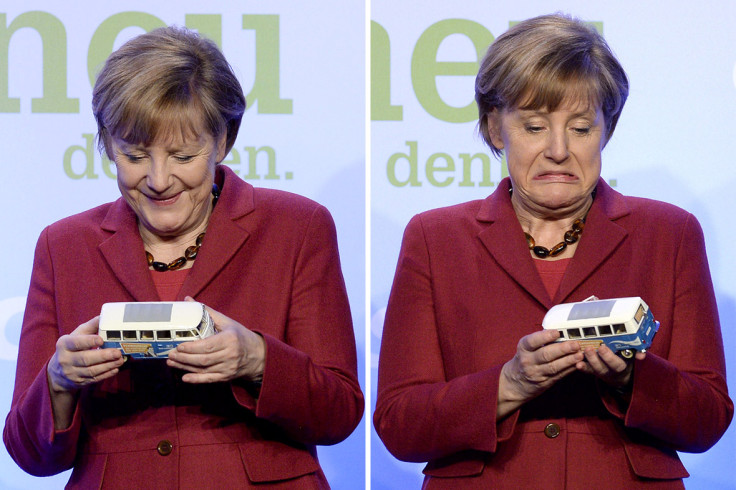VW scandal: Chancellor Angela Merkel says crisis won't hurt Germany's business reputation

German chancellor Angela Merkel said she does not think that the Volkswagen emission scandal will hurt Germany's image in the long-term. The chancellor admitted that the emission fraud committed by the car manufacturer was "dramatic", but said that the industry in Germany overall will be affected.
"It is, of course, a dramatic event which is not good," she said. "But I think the reputation of German industry… is not so shaken that we are no longer considered a good place to do business."
Manufacturing, especially in Germany's Ruhr area, accounts for 22% of the country's GDP and is an vital industry for its labour force. Although the sector will continue to strive after the VW scandal, it is thought that German stockmarket DAX has been weighed down by the plummeting share price of the carmaker.
The company accounts for around 14% of the total value of shares listed on the German DAX, which has lost a total of $400bn (£264bn) since April. The first suspicions of emission fraud surfaced at the beginning of September and since, Volkswagen has seen its share price fall by almost 40%.
Merkel's comments come shortly after Dr James Tate of the Institute for Transport Studies at Leeds University has said that BMW, Ford, Mazda and Mercedes vehicles emitted levels of nitrogen oxides up to seven times the limit set by authorities.
"The surprising finding for us was that even the Volkswagen engines were polluting 35% less than other comparable cars, suggesting all manufacturers have found their own ways of passing the laboratory tests," Tate told the Daily Mail. "We found small city diesel cars are emitting more than double-decker buses or fully laden 40-ton articulated lorries."
He added that cheating emission tests allow manufacturers to "sell tax-friendly, powerful luxury cars with supposedly low emission levels and make higher profits".
According to a survey by Sewells Research, almost half of UK corporate car buyers say they might refrain from buying VW cars in the future, despite the fact they might have opted for the brand frequently in the past.
News that more than 1.1m VW diesel cars in the UK had the fraudulent software installed shocked consumers and the cheating is suspected to be part of an industry-wide trend to dodge higher compensation costs.
© Copyright IBTimes 2025. All rights reserved.






















